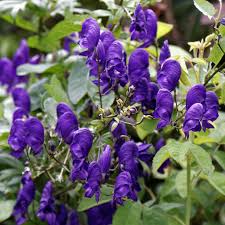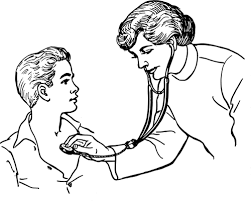
The following from Teste’s Homoeopathic Materia Medica, today a rare book, is both interestitng and valuable:
“Mr. X., 42 year old, tall, athletic, of a sanguine temperament, mild disposition, possessed of the most perfect equanimity, without anxiety about anything, and endowed with an adventurous spirit. He had been all over the world. His life had been full of incidents, and, therefore, a series of emotions. For the last two years he had been treated for aneurism of the heart; such at any rate, his disease had been pronounced by several medical celebrities of Russia, Germany and England.
His disease set in 1850, in consequence of a journey in a sleigh, which my patient had been obliged to take in midwinter, in the north of Russia, when the thermometer was from 300 to 350 Degrees below zero, and during which, trusting only to his own skill for the management of his own team in the snows, he remained with the upper part of hos body exposed to the wind for several weeks, night and day, although he was covered with the thickest kind of fur. But, in spite of this precaution, he was not able to resist such a hard exposure. It brought on, in his opinion and my own, the sad condition in which he now found himself, and which I shall endeavor to describe.
Mr. X., looked as if he enjoyed the most perfect health, calm lips, which are not, by any means, bloated; in one word, there was not a single symptom that might lead one to believe in the existence of an organic affection of the heart. Nevertheless he experienced acute stitches in the region of this organ, which alternated with violent palpitations, accompanied with intense anxiety, a good deal of dryness at the throat, and a noise in the head, which was particularly distressing in the left ear. During the most violent paroxysms he seemed even threatened with cerebral apoplexy, and lost his consciousness; these symptoms were only slowly and incompletely relieved by bleeding for they came on again after a certain interval. The whole left side of the chest, including the back and shoulders, were so painful that they could not be touched. For some months past, the patient, who had lost his sleep, dared not sleep any longer in his bed, and spent his mights in an easy chair.
It is to be observed (and this point is of great importance), that during the seven months that the patient spent in Egypt, which has a warm climate, all the morbid symptoms which have been related above, gradually disappeared, so that Mr. X. believed himself cured; but they all returned as soon as he again exposed himself to the climate of Northern Europe.
When I saw him the first time, his pains, which were intense, were not at their height. After listening to a recital of his sorrow I thought his case over in my accustomed manner and the result of my investigation was as follows:
On placing my hand on the left anterior and superior portion of the thorax, over the nipple, I perceived in this region an irregular, tumultous beating, which came on at momentary intervals, separated by short and rare intermissions. This beating was so violent that it raised and agitated the clothes. So that it could be seen, and the intervals distinctly noticed at a distance of several paces. The sensation of a rush of blood to the head was proportionate, according to the declaration of the patient, to the intensity of the beating. If the hand was applied below the costal insertion of the pectoralis major muscle, that is to say, on the pracordial region proper, the beats of the heart seemed perfectly normal and regular. Auscultation at these two points led to the same results, a dull friction-sound above and a spasmodic sensation perceptible to the touch, which shocked the ear; below, the normal sounds of the heart. Finally, while applying one hand to the pectoral major, and with the other feeling the pulse, either at the wrist, or at the carotid artery, or heart, it is at once seen that there is no sort of simultaneity between the pretended palpitations, mentioned by the patient, and perceived by the former hand, and the real beats of the heart and arteries.
There was no doubt, therefore, that these ten celebrated allopathic physicians, among whom, I read to my amazement, the name of Dr. Clarke, physician to the Queen of England, and who gave a similar diagnosis as the rest of them made a mistake. It was not an aneurism of the heart, but a simple neuralgia, or, in other words, a spasm of the pectoralis major muscle. The only physician who was of my opinion was Dr. Bouilland, but I did not become aware of this fact until I had established my own diagnosis.
This disease was certainly much less serious than an aneurism, but was I any the surer to cure it? What was the character of the disease? It was, if I may use this vague expression, a rheumatic affection of a muscle, produced by the influence of a keen and icy cold wind on a strong and plethoric organization. The muscles of the shoulder, chest and of that portion of the back, which corresponds to the heart; the intercostal muscles of the left side; and, lastly, the heart itself, although in a much less marked manner, were the parts involved. The spasm of the pectoralis muscle did not seem to me to furnish a particular indication; it was not a fixed symptom, but came and went at short intervals, As to the rush of blood to the left brain. Without any derangement of the rhythm of the pulse, which was 65 a minute, I explained it by the fact that either the arteries or the large venous trunks of the neck were pressed upon at every spasmodic contraction of the muscles which covered these vessels.
The pathological condition which I have here described is undoubtedly of sufficient interest to merit a detailed account, and there probably never was such a case before. I hesitated what remedy I should give. First I hit upon Spigelia. This stopped the stitches, but the spasm remained; he slept a few hours the first night (which he had not done for six months) ; but there was prostration. Loss of appetite, bitterness of mouth, and a slight headache with dizziness in the morning. Three days after Spigelia I gave Colchicum, which had a little better effect. There was less dryness in the throat; no headache; six or seven hours good sleep at night; no stitches of any kind; for some hours the spasm ceased; but the pain in the shoulder continued, nor did the appetite return; nevertheless Mr. X. felt very much encouraged. He looked on Homoeopathy as his sheet anchor, where the old school practice had never afforded him a quarter of an hour relief, and left him no other prospect than a life of suffering which death alone, so often desired by him, could terminate.
On the fifth or sixth day of the treatment, Mr. X. received some bad news, and all the symptoms (spasms, stitches, congestion, noises) became worse again. The Colchicum remained powerless. Fortunately my opinion concerning the true remedy in this case had become settled. The nature of the disease, its cause (exposure to a keen and icy cold wind), the constitution of the patient (sanguine and athletic), every symptom, except the non-existence of fever, pointed to Aconite. It acted like magic.


